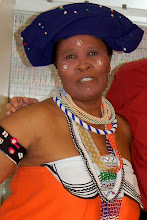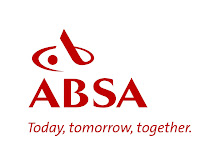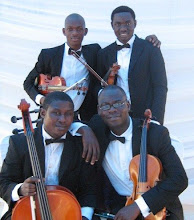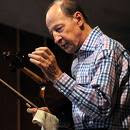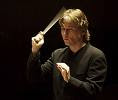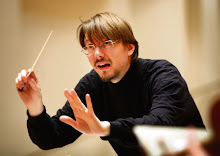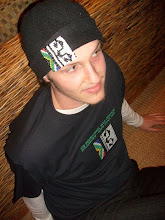Erdélyi restoration and orchestration of the Bartók Viola Concerto
There are three versions of the Bartók Viola Concerto (the composer’s last work left in draft) published: Tibor Serly (B&H 1950), the revised version done by Peter Bartók and Nelson Dellamaggiore (B&H 1995), and the one done by Csaba Erdélyi (Promethean Editions 2004) in co-operation with composers György Kurtág and Péter Eötvös, with scholars Elliott Antokoletz and László Somfai, and with performers Yehudi Menuhin and Zoltán Székely.
The highly acclaimed CD of the Erdélyi restoration and orchestration
of the last work of Bartók, the Viola Concerto, left by the composer
in draft form, is available on Concordance label, with Csaba Erdélyi
as soloist with the New Zealand Symphony conducted by Marc
Taddei. Also included on the CD is Berlioz: Harold in Italy.
http://www.concordance.co.nz
On the Erdélyi edition:
Csaba Erdélyi grew up in Hungary, a student of viola, piano, composition and conducting. He studied Bartók's entire oeuvre in great depth with the best Bartók interpreters and analysts, and while playing the only available edition of the Viola Concerto, the Serly version at the time, he instinctively felt which were Bartók's original notes, and cringed at those many moments when there was something else.
The manuscript was declared lost until the 1970s (Serly died in 1978), and after it was found, Bartók's son, Peter did not allow the facsimile publication until 1995 when he published his own revision. In the meantime, photostats were sent to and kept under close guard at the Bartók Archives in Budapest and the Primrose Archives in Provo. Between 1980 and 1990 Erdélyi paid countless visits to these libraries, taking with him the Serly orchestra score and marking all the differences. After numerous consultations with two of the most respected Bartók scholars, Elliott Antokoletz and László
In 1992 Erdélyi played the first performance of the "Bartók's notes only" Viola Concerto in the Budapest Opera House with the Budapest Philharmonic Orchestra conducted by Erich Bergel. He still used the Serly orchestration, but with all the wrong notes corrected and notes composed by Serly removed. The recording of this performance was sent to eminent musicians who worked with Bartók, such as Menuhin, Székely, Lehner, Végh etc. Their response was most positive. The letter from Eugene Lehner, violist of the Kolisch Quartet, friend of Bartók, was particularly touching:
"Dear Prof. Erdélyi,
I cannot thank you enough for sending me Bartók's 'reconstructed' Viola Concerto. I must confess that I always felt rather uncomfortable, even somewhat embarrassed when students of mine were studying it, too many times things seemed to me just not being right. Your efforts now permit me to have a new, quite different (I hope the right) approach to this great work.
You rendered invaluable service to Bartók and all violists. My warmest congratulations also for your superb performance of it. I am very much impressed how truly in his spirit and style you realize all what death prevented him to notate unmistakenly.
I am with highest regards, yours
Eugene Lehner"
As Serly's compositional style and orchestration was much closer to his teacher's, Kodály's than Bartók's, Erdélyi felt that to complete the restoration of the Viola Concerto, a new orchestration was also necessary. He asked the greatest living Hungarian composer, György Kurtág if he would write the score. Kurtág said that the task would take too much time away from his own composing, but he kindly added that if Erdélyi wrote the score, he would help him with his observations.
In preparation to write the full score of the Viola Concerto, Erdélyi spent many more years studying Bartók's sketches, rehearsal copies and subsequent orchestrations of such major works as the Violin Concerto, 3rd Piano Concerto, Dance Suite and more. Between 1996 and 2001 he had chiselled the orchestration through many rehearsals and performances with several university orchestras. The final score and parts that are now published by Promethean Editions, also incorporate wonderful suggestions by Hungarian composers György Kurtág and Péter Eötvös as well as Bartók-scholar, Elliott Antokoletz.
Neither the Serly-Primrose (1950) nor the P. Bartók-N. Dellamaggiore (1995) versions were prepared with so much benefit of scholarly advice, involvement of major composers and the length of years spent in rehearsals and performances leading up to Csaba Erdélyi's publication.
Sample reviews:
" Csaba Erdélyi's labor of love, reconstructing Béla Bartók's
unfinished Viola Concerto, comes to fruition on this excellent
recording. Erdélyi spent years studying the composer's manuscript,
comparing it to the published edition completed by Tibor Serly and
William Primrose, the violist who had commissioned the work shortly
before the composer's death in 1945. Erdélyi painstakingly corrected
passages and completely reworked the orchestration.
The result is a marvelous rendition, beautifully performed, evoking
the Hungarian folk melodies, rhythms, and moods that permeate the best
of Bartók's other works. (For details, visit www.concordance.co.nz)"
- Elisa M. Welch, STRINGS, January 2003
"Erdélyi's performance is an absolute cracker. Most of his own playing
is uniquely urgent and eloquent, with burning burnished tone.... The
CD is a must for Bartók and viola enthusiasts."
- Tully Potter, The STRAD, January 2003
"This is, I believe, a very important addition to Bartók discography,
and represents a labour of devotion, determination and considerable
scholarship on the part of Csaba Erdélyi, the soloist here. He has
been working continuously over many years, through many revisions, and
against considerable opposition and obstruction, to produce this
version of Bartók's unfinished swansong. It lays fair claim to be the
most authentic summation of the composer's intentions...
Erdélyi is a violist, a scholar and, not least, a Hungarian, and he
has steeped himself in Bartók's style and orchestration. The new
version has a definite authentic ring and recognizable Bartókian
flavour. It is essential listening for all enthusiasts."
- David Thompson, MUSIC and VISION, December 2002
"For the first time, I feel like Bartók's in the room .. Erdélyi's
realization fits my image of Bartók's music more snugly than
Serly's .......This recording replaces my previous two best
recordings - Daniel Benyamini and Barenboim , and YoYo Ma with Zinman.
Erdélyi, a virtuoso certainly up to the technical demands of the
piece, and he plays with intensity and fire ..... Soloist and orchestra achieve wonderful clarity and fine ensemble .... the CD isessential for Bartók fans."
- Steve Schwartz, Classical.Net, November 2002
"It gave me explicit pleasure to listen, and it was this time that I came to love the work"
- György Kurtág, Hungarian composer
Béla Bartók Viola Concerto (Erdélyi restoration) Viola & Piano
ISMN M-67452-060-7 Code PE066 Score & part
Publication Date 2002
$60.00 NZ (ca. $35 US)
Béla Bartók Viola Concerto (Erdélyi restoration) Viola & Orchestra
ISMN M-67452-096-6 Code PE065 Full orchestra score
Publication Date 2004
$120.00 NZ (ca. $70 US)
Rental fee for score and parts: $531 NZ (ca. $310 US)
http://www.promethean-editions.com
Notice on Copyright:
Anyone in the world can legally order both the Erdélyi edition and CD of the Bartók Viola Concerto ONLINE with a credit card from the websites above, and they will be mailed to their address. There are also some countries where Bartók's music is already in public domain, such as Australia and New Zealand, where the Erdélyi edition is available for purchase in music shops.
The Bartok Viola Concerto will be recited by Csaba Erdélyi (USA/Hun) himself during the Gala Concert on Thursday the 30 th of July in the Endler Hall @20h00
-








